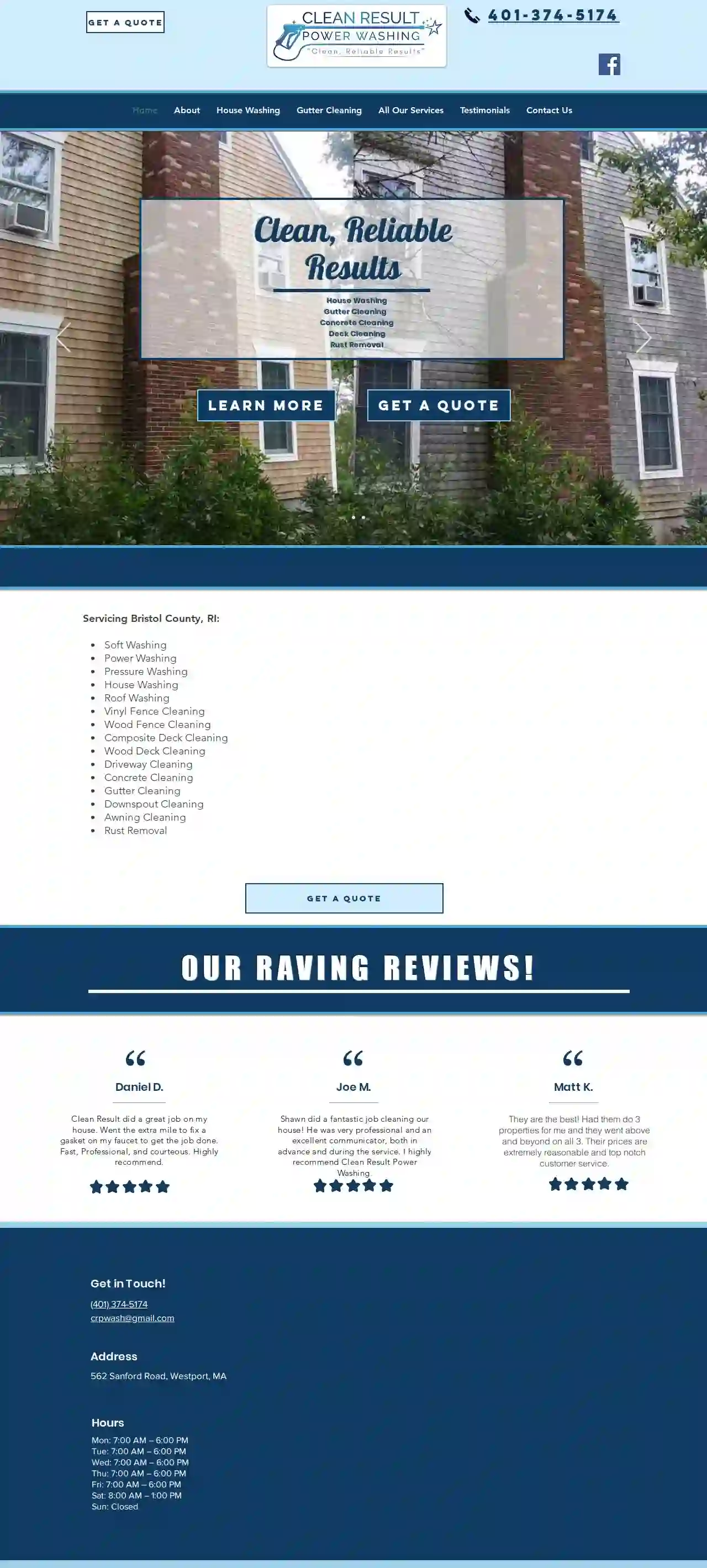Gutter Cleaning Hornellsville
Top 10 Gutter Cleaning in Hornellsville
Get multiple Gutter Cleaning quotes for your project today! Compare profiles, reviews, accreditations, portfolio, etc... and choose the best service.

Home Clean Home
4.7184 reviewsBrooklyn, USHCH Inc. is a leading cleaning service for homes and businesses in New York. With almost 3 decades of experience, we understand the importance of trust and expertise in cleaning your home or office. Our team of professionals is dedicated to providing top-notch cleaning services, from residential cleaning to commercial cleaning, and everything in between. We are proud of our numerous awards and certifications, including being a SBA Certified Woman-Owned Business, an Inc. 5000 company, and a winner of the Interprizing Woman Award. Our services include residential cleaning, commercial cleaning, virus disinfecting, hoarders cleaning service, post construction/final cleaning, bed bug preparation, managed long term care, DME home modification, heavy duty cleaning, flood restoration, professional organization, upholstery cleaning, carpet cleaning, Passover cleaning, end of tenancy cleaning, and more. Contact us today to schedule your free consultation and get a quote.
- Services
- Why Us?
- Accreditations
- Our Team
- Gallery
Get Quote
One Call Contractor Inc. Yonkers, NY: Roof Shingle/Flat, Masonry, Chimney, Deck, Skylight Install & Repair Contractor Yonkers
59 reviews11 Vera Rd, Yonkers, 10708, USOneCall Contractor INC. is a fully licensed and insured roofing and construction company serving the New York area. With over 25 years of experience, we deliver 100% customer satisfaction and absolute quality work without exception. Our team of experts is dedicated to providing top-notch services, from roof repair and replacement to deck construction and restoration. We pride ourselves on our commitment to customer satisfaction and our ability to handle any roofing or construction project with ease.
- Services
- Why Us?
- Accreditations
- Gallery
Get Quote
George's Seamless Gutters
4.9133 reviewsWestchester County, USSince 1999, George's Seamless Gutters has been the go-to expert for all gutter and roofing needs in Westchester County. We pride ourselves on our seamless gutters, copper gutters, and sleek black gutters, along with our diverse range of gutter guards and downspouts. Our skilled team is dedicated to providing high-quality gutter installations that not only function flawlessly but also boost your home's curb appeal. We also offer expert roofing solutions including durable GAF roofing materials, chic standing seam metal roofs, versatile flat roofs, elegant copper roofing, meticulous roof flashing, and timely roof repairs. Our committed, in-house team ensures every project is executed with unmatched professionalism and meticulous attention to detail—no subcontractors involved.
- Services
- Why Us?
- Accreditations
- Our Team
- Gallery
Get Quote
Gutter Cleaning Syracuse, NY
51 reviewsSyracuse, USAt Syracuse Gutter Cleaning, we understand the importance of keeping your gutters clean and free-flowing. Our team of professionals is dedicated to providing top-notch gutter cleaning services to homeowners and businesses in the Syracuse area. With years of experience and a commitment to excellence, we can help you protect your home's foundation, walls, and roof from rainwater damage. Our gutter cleaning services include gutter installation, gutter repair, gutter inspection, moss removal, fascia and soffit cleaning, gutter guards and screens, commercial gutter cleaning, residential gutter cleaning, seamless gutter installation, gutter guards & covers, gutter tune-up, and complete gutter systems. Contact us today to schedule your appointment and take advantage of our free quote offer!
- Services
- Why Us?
- Gallery
Get Quote
Done Deal Gutters Co
45 reviews11740, Greenlawn, USWelcome to Done Deal Gutters Co. of Greenlawn NY. This website offers you the opportunity to learn more about our company. A family owned and operated business since 1986. Courteous Reliable Service & Expert In Installation & Annual Cleaning for Homeowners, Contractors, Builders, Architects, Co- Ops in Seamless Rain Gutter Installation Gutter Cleaning ~ Repairs Soffit / Fascia, Capping Aluminum Wood Replacment Under Ground Drainedge Systems ~ Condo/Apt. Complex Maintenance Serving all of Long Island If you have comments or questions, let us know by clicking Contact Us or to schedule an appointment. CALL TODAY FOR A FREE ESTIMATE NASSAU SUFFOLK 516.433.8419 631.261.2385 NASSAU LIC# H8C6220000 - SUFFOLK LIC# 24,477-HI * FULLY INSURED * ALL WORK GUARENTEED
- Services
- Why Us?
- Gallery
Get Quote
Critics Choice Window Cleaning
5136 reviewsPoughkeepsie, USCritics Choice Window Cleaning is a professional window cleaning service that offers a range of services to residential and commercial clients. With over 15 years of experience, we have built a reputation for providing high-quality, damage-free, and low-pressure house and roof washing services. Our team of experts uses the latest equipment and techniques to ensure that your windows, gutters, and roofs are cleaned to perfection. We serve the Greater Hudson Valley and Tri-State Area, and offer free quotes for all our services. Contact us today to learn more about our services and how we can help you make your home or business look new again.
- Services
- Why Us?
- Testimonials
- Gallery
Get Quote
Summit Professional Services LLC
519 reviewsQueens, USWelcome to Summit Professional Services LLC, your premier provider of top-tier exterior cleaning services in Bristol County, MA, South Eastern RI, and beyond. Whether you’re a homeowner looking to rejuvenate your property or a business needing to maintain a professional appearance, we offer a comprehensive range of services to meet your needs. From house washing to deck cleaning, we’ve got you covered. Our Exterior Cleaning Services At Summit Professional Services LLC, we provide a comprehensive range of exterior cleaning services designed to meet all your residential and commercial needs. Utilizing state-of-the-art Soft Washing and Pressure Washing techniques, we ensure that your property looks its best. Explore our services below to learn how we can help you maintain and enhance your property.
- Services
- Why Us?
- Gallery
Get Quote
Clean Result Power Washing LLC
555 reviews562 Sanford Road, Westport, 02790, USClean Result Power Washing is your trusted partner for all your exterior cleaning needs in Bristol County, RI. We offer a wide range of services, including house washing, gutter cleaning, concrete cleaning, deck cleaning, and rust removal. Our team of experienced professionals is dedicated to providing you with clean, reliable results that exceed your expectations. We use the latest equipment and techniques to ensure a thorough and efficient cleaning process. Whether you need to refresh your home's curb appeal or remove stubborn grime, Clean Result Power Washing is here to help. We are committed to providing our customers with exceptional service and value. We offer competitive pricing and flexible scheduling options to meet your needs. Contact us today for a free quote and let us take care of your exterior cleaning needs.
- Services
- Why Us?
- Our Team
- Testimonials
- Gallery
Get Quote
Fish Window Cleaning
510 reviews930 County St, 02726, USWelcome to Fish Window Cleaning of New Bedford, MA! We are your local window cleaning company for the New Bedford, Fall River, Mattapoisett, Seekonk, Marion, Dartmouth, Fairhaven, Westport, Acushnet, Somerset, and Swansea, MA! Call today for a free estimate! 508-999-5040 We proudly serve: New Bedford, Fall River, Mattapoisett, Seekonk, Marion, Dartmouth, Fairhaven, Westport, Acushnet, Somerset, and Swansea, MA Do you live in Rhode Island? We also serve Providence and the metro RI area. Click here to visit our RI site. Our specialty is in giving you perfectly clean windows, and we are ready to serve your business or home. Our window cleaners are trained to provide the superior customer service you expect when in the workplace or the quiet environment of your home. Window cleaning is our profession. It’s not just a job we do, and we treat it that way. "Fish Window Cleaning company is a reliable and professional business." - Maura G. "Your guys are great; very easy to deal with, efficient and hard working. You should give them a raise. Thank you. I look forward to working with you again." - Joseph S. Our services include: Commercial and Residential Window Cleaning Gutter Cleaning Power Washing Construction Cleanup Hard Water Stain Removal Screen Cleaning High-level Dusting Ceiling Fan Cleaning Your Home We provide cleaning of all types of windows, even the hard to reach ones of your home. You can rely on Fish Window Cleaning to take the utmost care of your residence as we clean your windows. We wear fresh shoe covers as we enter your home and use cloth pads under each window as we clean it to protect your carpet and wood floors. We work quietly and quickly as we move from room to room to cause the least disruption. We even introduce our team to you before we start cleaning so you know exactly who will be giving your windows a spectacular shine. Your Business We maintain storefronts and commercial buildings, helping you to achieve a polished look to give your customers a good impression. We provide cleanings ranging from weekly to annually, tailoring our services to the needs of your business. Regardless of your budget, we can put together a program for you. We’ve led the industry with a premiere safety program to ensure the protection of our customers and cleaners. We also provide the peace of mind that our licensed, bonded, and insured window cleaners will be maintaining the appearance of your business.
- Services
- Why Us?
- Our Team
- Testimonials
- Gallery
Get Quote
Empire Seamless Gutters
4.917 reviewsPoughkeepsie, USEmpire Seamless Gutters is a full-service gutter company servicing the Hudson Valley and surrounding areas since 2005. We are two brothers who take pride in their work. We are both very meticulous and constantly challenging each other to provide the best service possible. Over the years we have spent time working in various construction fields so we have a good background in all aspects of a home's functional systems and how to care for each of them. With 15 years of experience in the gutter business, you will receive excellent service and our commitment to treat each home and property as if it were our own. We are fully insured and all work is 100% guaranteed.
- Services
- Why Us?
- Our Team
- Gallery
Get Quote
Over 60,241+ Janitorial Contractors in our network
Our cleaning service providers operate in Hornellsville & beyond!
CleaningMatch has curated and vetted Top Janitorial Services arround Hornellsville. Find a trustworthy contractor today.
Frequently Asked Questions About Gutter Cleaning
- Visible Debris: You can see leaves, twigs, and other debris accumulated in your gutters from the ground.
- Sagging Gutters: Gutters that are filled with debris become heavy and can sag or pull away from the house.
- Water Overflowing: During rainfall, water spills over the sides of your gutters instead of flowing through the downspouts.
- Water Stains: Water stains on your siding or foundation indicate that your gutters are overflowing.
- Plant Growth: Plants or moss growing in your gutters indicate standing water and a lack of proper drainage.
- Safety: Cleaning gutters involves working at heights, which can be dangerous. Ensure you have a stable ladder and someone to spot you.
- Equipment: You'll need a ladder, gloves, a bucket, a gutter scoop, and possibly a hose or pressure washer.
- Time and Effort: Gutter cleaning can be time-consuming and physically demanding, especially if you have a large house or multiple stories.
- Debris Disposal: You'll need to dispose of the collected debris properly.
- Aluminum: A popular choice due to its affordability, durability, and resistance to rust. Available in seamless and sectional varieties.
- Vinyl: Lightweight, inexpensive, and easy to install. Less durable than aluminum and can become brittle in extreme temperatures.
- Steel: Strong and durable but prone to rust if not galvanized or coated.
- Copper: High-end and aesthetically pleasing, known for its longevity and resistance to corrosion. More expensive than other gutter materials.
- Zinc: Durable and long-lasting, with a distinctive patina that develops over time. More expensive than aluminum but less expensive than copper.
- Improper Ladder Placement: Placing a ladder incorrectly can damage shingles or gutters.
- Excessive Force: Using excessive force when removing debris can damage gutters or dislodge shingles.
- High-Pressure Washing: Using high-pressure washing on delicate roofing materials can cause damage.
How do I know if my gutters need cleaning?
If you notice any of these signs, it's time to schedule a gutter cleaning.
Can I clean my own gutters?
DIY Gutter Cleaning Considerations:
If you're comfortable working at heights, have the necessary equipment, and are willing to invest the time and effort, DIY gutter cleaning is an option. However, for safety, convenience, and professional results, hiring a gutter cleaning service is often a better choice.
What are the different types of gutter materials?
The best gutter material for your home depends on your budget, climate, and aesthetic preferences. Consult with a gutter professional to determine the most suitable option for your needs.
Can gutter cleaning damage my roof?
To minimize the risk of roof damage, choose a reputable gutter cleaning company with experienced and trained professionals who prioritize safety and use appropriate cleaning methods.
How do I know if my gutters need cleaning?
- Visible Debris: You can see leaves, twigs, and other debris accumulated in your gutters from the ground.
- Sagging Gutters: Gutters that are filled with debris become heavy and can sag or pull away from the house.
- Water Overflowing: During rainfall, water spills over the sides of your gutters instead of flowing through the downspouts.
- Water Stains: Water stains on your siding or foundation indicate that your gutters are overflowing.
- Plant Growth: Plants or moss growing in your gutters indicate standing water and a lack of proper drainage.
If you notice any of these signs, it's time to schedule a gutter cleaning.
Can I clean my own gutters?
DIY Gutter Cleaning Considerations:
- Safety: Cleaning gutters involves working at heights, which can be dangerous. Ensure you have a stable ladder and someone to spot you.
- Equipment: You'll need a ladder, gloves, a bucket, a gutter scoop, and possibly a hose or pressure washer.
- Time and Effort: Gutter cleaning can be time-consuming and physically demanding, especially if you have a large house or multiple stories.
- Debris Disposal: You'll need to dispose of the collected debris properly.
If you're comfortable working at heights, have the necessary equipment, and are willing to invest the time and effort, DIY gutter cleaning is an option. However, for safety, convenience, and professional results, hiring a gutter cleaning service is often a better choice.
What are the different types of gutter materials?
- Aluminum: A popular choice due to its affordability, durability, and resistance to rust. Available in seamless and sectional varieties.
- Vinyl: Lightweight, inexpensive, and easy to install. Less durable than aluminum and can become brittle in extreme temperatures.
- Steel: Strong and durable but prone to rust if not galvanized or coated.
- Copper: High-end and aesthetically pleasing, known for its longevity and resistance to corrosion. More expensive than other gutter materials.
- Zinc: Durable and long-lasting, with a distinctive patina that develops over time. More expensive than aluminum but less expensive than copper.
The best gutter material for your home depends on your budget, climate, and aesthetic preferences. Consult with a gutter professional to determine the most suitable option for your needs.
Can gutter cleaning damage my roof?
- Improper Ladder Placement: Placing a ladder incorrectly can damage shingles or gutters.
- Excessive Force: Using excessive force when removing debris can damage gutters or dislodge shingles.
- High-Pressure Washing: Using high-pressure washing on delicate roofing materials can cause damage.
To minimize the risk of roof damage, choose a reputable gutter cleaning company with experienced and trained professionals who prioritize safety and use appropriate cleaning methods.
